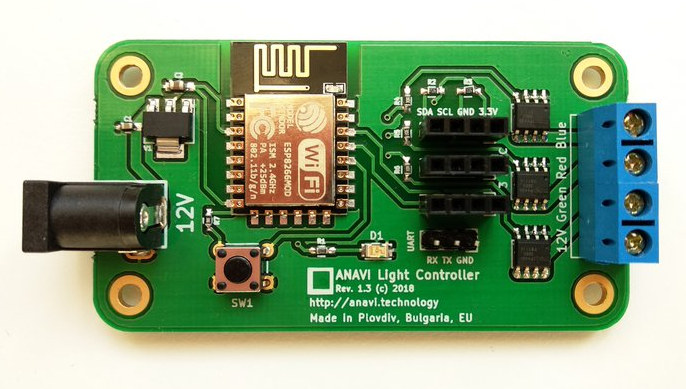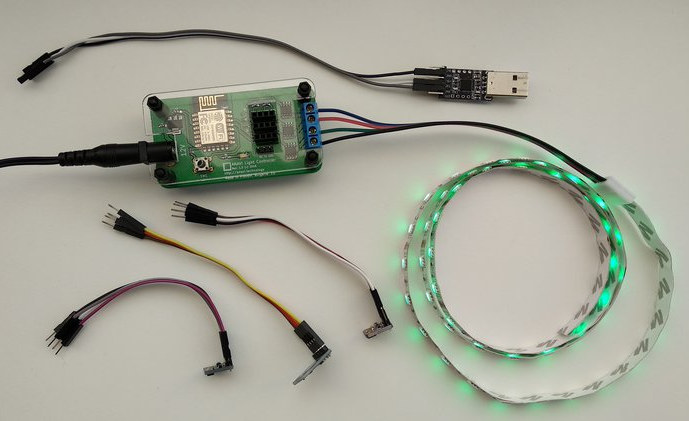ANAVI Technology previously launched a Light pHAT allowing for RGB Light strip connection to Raspberry Pi boards, and during my review of ANAVI Light pHAT with Raspberry Pi 2, it did the job, but if that’s all you want to do, the Raspberry Pi board is clearly oversized & overpowered for the job.
So Leon ANAVI got back to the drawing board and designed a similar open source hardware board – called ANAVI Light Controller – with an built-in ESP8266 module that removes the need for a fully fledged Linux board.
 ANAVI Light Controller specifications:
ANAVI Light Controller specifications:
- Wireless Module – ESP8266MOD module based on ESP8266 Tensilica L106 32-bit processor
- Connectivity – WiFi 802.11 b/g/n
- Expansion
- Terminal block for 12 V RGB LED strip
- 3x I2C headers for sensors
- Debugging – UART header
- Misc – Button
- Power Supply – 12 V via power barrel jack
- Dimensions – 75 mm x 40 mm
- Certification – Open Source Hardware Association (OSHWA) BG000005
The board can be programmed with the Arduino IDE or Home Assistant, and controlled with MQTT or any modern web browser. Since the project is open source hardware, all KiCad & OpenSCAD hardware design files and open source firmware can be found on AnaviTechnology Github account.
Supported I2C modules include BH1750 light sensor, HTU21D temperature and humidity sensor, and APDS-9960 RGB color and gesture detection sensor. A one meter 12 V RGB LED strip with 30 LEDs is provided in the kits.
The project has just launched on CrowdSupply with a symbolic $1 funding target. If you just need the board, a pledge of $25 will do, but for a complete kit (minus power supply), you’d need to pledge at least $39 for a starter kit with an LED strip, acrylic case and a USB to serial debug cable. The $59 Developer kit will be more fun to use as it also adds all 3 sensor modules listed above. Shipping is free worldwide, and delivery is planned for end of August to end of September depending on rewards.

Jean-Luc started CNX Software in 2010 as a part-time endeavor, before quitting his job as a software engineering manager, and starting to write daily news, and reviews full time later in 2011.
Support CNX Software! Donate via cryptocurrencies, become a Patron on Patreon, or purchase goods on Amazon or Aliexpress





